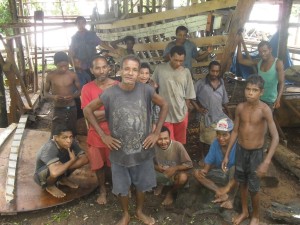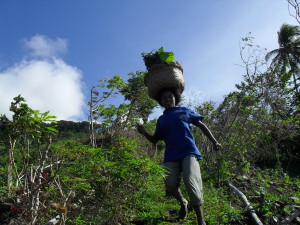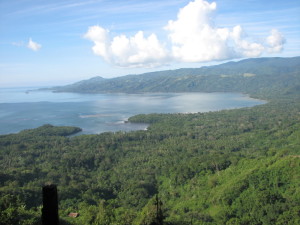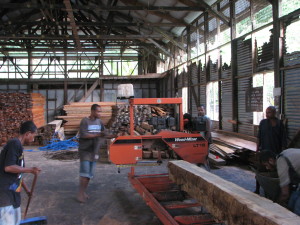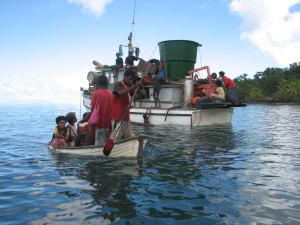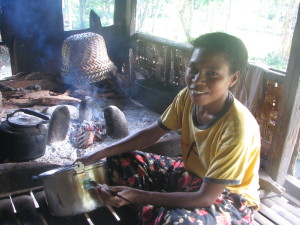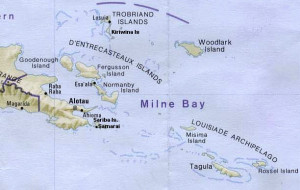About PNG
- Boatbuilding!
- Carrying the produce home
- View from the garden
- Milling the timber
- A typically laden workboat…
- Preparing dinner
Papua New Guinea is one of the world’s least explored countries with many undiscovered species of plants and animals still existing in the interior.
There are around 800 different languages spoken, and more than half of these are completely unrelated. While English is the official language, Pidgin (known locally as Tok Pisin) and Motu (from the Papua region) serve as trading languages between tribes
The traditional cuisine is based on root crops such as taro, kaukau and yams, sago and pig and is normally cooked in the ground or over an open fire. ‘Mumu’ is one of the traditional dishes combining roast pork, sweet potatoes, rice and greens.
More than 80 per cent of the population undertakes subsistence farming, supplemented, where possible, by fishing and hunting, in small canoes.
Travel between villages and towns is often only possible by sea (or air) due to the heavily forested hills, which is why so much of our ministry revolves around teaching good seamanship and showing them how to build safer, more capable boats.
The vegetable gardens are high on the hill and the women have to walk all the way up from the sea, to tend the garden and then carry the produce all back down to the village.
Near to the village where we are working there is a river which all the school children have to cross to get to school, it is home to alligators and although there have been no accidents so far, we hope to provide a small boat to alleviate this risk…
The timber that is used for boatbuilding and sold locally is taken from different parts of the forest. To fell and prepare one tree can take a whole day, due to the terrain and the distance they have to carry the logs. The timber is ‘wet’ which makes it very heavy to carry.
The cost of sending a child to school deters many families from enrolling their children, while in rural areas, girls contribution to their families domestic life and income mean parents often consider their education a poor investment.
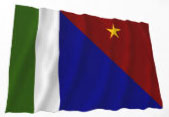 To learn more about PNG, there is some great information on the World Vision website
To learn more about PNG, there is some great information on the World Vision website
– see here.
YWAM also have a medical ship operating in PNG
– see here.
